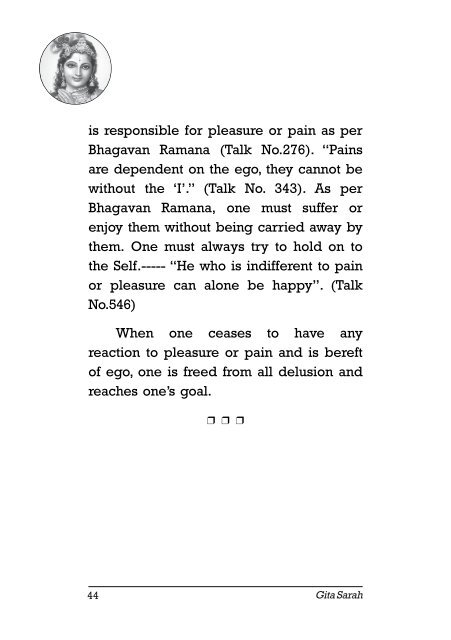Gita-Sarah-Commentary-on-the-Slokas-of-Bhagavad-Gita
Gita-Sarah-Commentary-on-the-Slokas-of-Bhagavad-Gita
Gita-Sarah-Commentary-on-the-Slokas-of-Bhagavad-Gita
Create successful ePaper yourself
Turn your PDF publications into a flip-book with our unique Google optimized e-Paper software.
is resp<strong>on</strong>sible for pleasure or pain as perBhagavan Ramana (Talk No.276). “Painsare dependent <strong>on</strong> <strong>the</strong> ego, <strong>the</strong>y cannot bewithout <strong>the</strong> ‘I’.” (Talk No. 343). As perBhagavan Ramana, <strong>on</strong>e must suffer orenjoy <strong>the</strong>m without being carried away by<strong>the</strong>m. One must always try to hold <strong>on</strong> to<strong>the</strong> Self.----- “He who is indifferent to painor pleasure can al<strong>on</strong>e be happy”. (TalkNo.546)When <strong>on</strong>e ceases to have anyreacti<strong>on</strong> to pleasure or pain and is bereft<strong>of</strong> ego, <strong>on</strong>e is freed from all delusi<strong>on</strong> andreaches <strong>on</strong>e’s goal.44<str<strong>on</strong>g>Gita</str<strong>on</strong>g> <str<strong>on</strong>g>Sarah</str<strong>on</strong>g>


